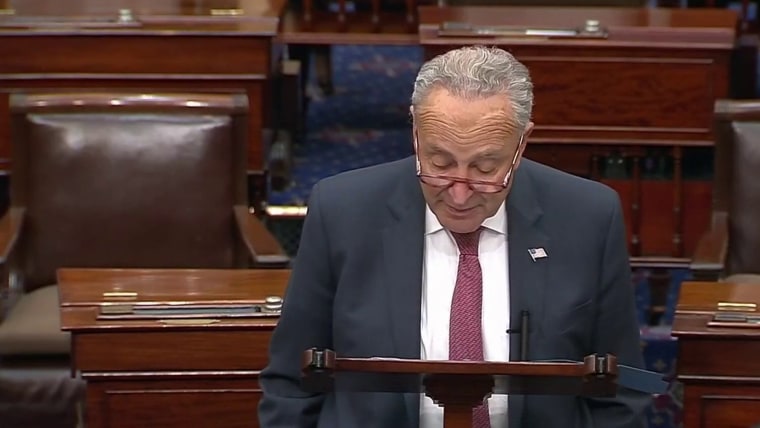WASHINGTON — The House passed legislation to keep the government running until Dec. 16, a final act of business before both chambers of Congress recess for six weeks until the midterm election.
The vote was 230-201.
The bill, which passed the Senate by a vote of 72-25 on Thursday, now goes to President Joe Biden, who is expected to sign it before the midnight deadline to avert a shutdown.
The stopgap measure gives congressional leaders additional time to negotiate a full-year funding deal, along with a host of other priorities they intend to tackle in the lame duck session. That includes a defense authorization bill and a package of changes to election laws designed to prevent another Jan. 6-style attempt to overturn a presidential election.
The bill includes $12 billion in assistance to Ukraine, money for Afghan refugees, enhanced security for U.S. courts and a five-year reauthorization of user fees for the Food and Drug Administration.
House Republican leaders pressured their members to vote against the legislation, indicating a split between House Minority Leader Kevin McCarthy and Senate Minority Leader Mitch McConnell, who supported the measure. It is a sign that must-pass funding measures could get contentious if Republicans capture the House this fall.
The Senate’s top two appropriators — Committee Chair Sen. Patrick Leahy, D-Vt., and Sen. Richard Shelby, R-Ala. — are retiring at the end of the year and want to go out with a larger funding deal, rather than punt the issue into the new year.
Even though Congress successfully kept the government open, the session ended on a sour note for some House Democrats.
Rep. Abigail Spanberger, D-Va., excoriated her party’s leaders for failing to call a vote on her TRUST in Congress Act, which would ban members of Congress from trading stock while in office. The bill is aimed at boosting transparency and battling possible insider trading by requiring members, as well as their spouses and dependent children, to put certain assets in a blind trust.
“This moment marks a failure of House leadership — and it’s yet another example of why I believe that the Democratic Party needs new leaders in the halls of Capitol Hill, as I have long made known,” said Spanberger, who faces a difficult re-election bid in November. “Rather than bring Members of Congress together who are passionate about this issue, leadership chose to ignore these voices, push them aside, and look for new ways they could string the media and the public along — and evade public criticism.”
Kyle Stewart contributed.
Source: | This article originally belongs to Nbcnews.com










